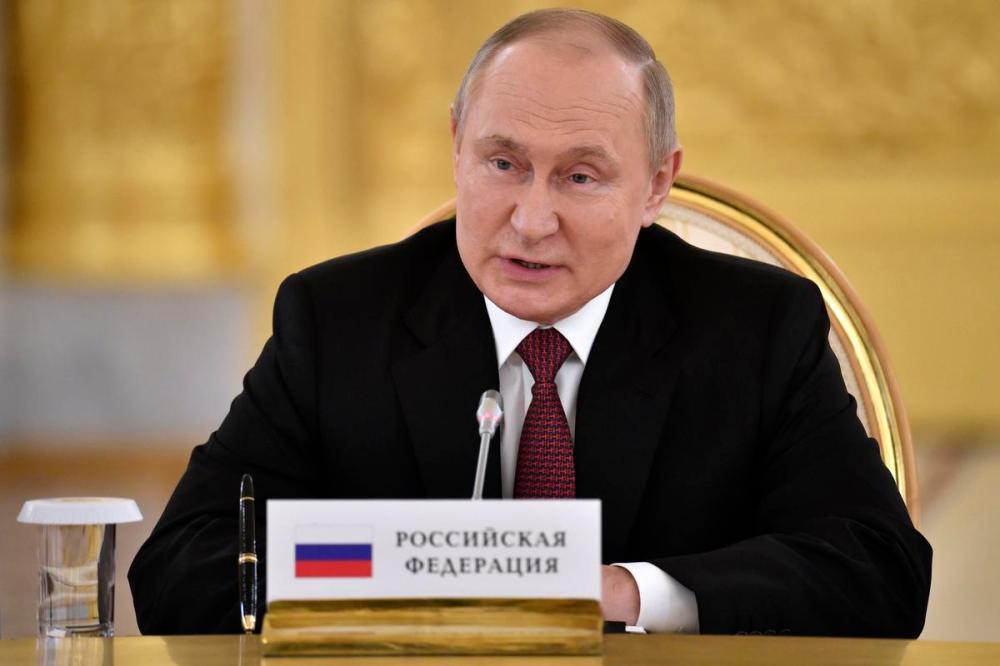Ottawa moves to formally ban sanctioned Russians from entering Canada
Advertisement
Read this article for free:
or
Already have an account? Log in here »
To continue reading, please subscribe:
Monthly Digital Subscription
$1 per week for 24 weeks*
- Enjoy unlimited reading on winnipegfreepress.com
- Read the E-Edition, our digital replica newspaper
- Access News Break, our award-winning app
- Play interactive puzzles
*Billed as $4 plus GST every four weeks. Offer only available to new and qualified returning subscribers. Cancel any time.
Read unlimited articles for free today:
or
Already have an account? Log in here »
Hey there, time traveller!
This article was published 17/05/2022 (1022 days ago), so information in it may no longer be current.
OTTAWA — Canada wants to ban any Russian sanctioned over the war in Ukraine from entering the country, a move that could affect upwards of 1,000 people and counting.
The federal government introduced a bill in the Senate on Tuesday to amend existing immigration law, in order to make explicit that those on the sanctions list are inadmissible to Canada and can be removed if they’re already here.
“Banning close associates and key supporters of (Russian President Vladimir) Putin’s regime, including those responsible for this unprovoked aggression from entering our country, is one of the many ways in which we’re holding Russia accountable for its crimes,” Public Safety Minister Marco Mendicino said in a statement.

“We will continue to exhaust all options to uphold freedom and democracy, punish Russia, and support Ukraine.”
Canada and many other Western nations have placed economic sanctions on Russians in response to the war in Ukraine, a punitive measure aimed at crippling that country’s economy in a bid to force an end to the conflict.
Those on Canada’s list, which continues to grow, include Putin and his closest officials and allies, as well as their families, Russian oligarchs and various other political and business officials.
Although the sanctions prohibit business or economic dealings with listed individuals or entities, they don’t automatically bar an individual from entering Canada.
Grounds for inadmissibility are laid out under the Immigration and Refugee Protection Act, which currently does not cite sanctions as a reason, although border or immigration officials would have the discretion to revoke or refuse a visa to anyone on a sanctions list.
The bill introduced Tuesday seeks to close that loophole.
It will add the explanations for levying sanctions, as stated in the Special Economic Measures Act, to the list of reasons a person can be deemed inadmissible.
Those barred would still have access to the asylum system should they wish to make a claim.
The bill must pass through the Senate and then the House of Commons before becoming law.
Russia has already barred dozens of Canadians from entering that country, including politicians, journalists and business and community leaders.
As the war in Ukraine enters its twelfth week, it continues to redraw the lines of global alliances.
Sweden and Finland pushed ahead Tuesday with their bids to join NATO, even as Turkey insisted it won’t let the previously non-aligned Nordic countries into the alliance because of their alleged support for Kurdish militants.
The foreign ministers of both countries signed formal application letters to be handed over jointly on Wednesday at the alliance’s headquarters in Brussels.
Joining NATO would be a huge shift for both countries. Sweden has stayed out of military alliances for more than 200 years, while Finland adopted neutrality after being defeated by the Soviet Union in the Second World War.
The Russian Foreign Ministry said Tuesday it was expelling two Finnish diplomats, and would quit a multinational organization focused on the Baltic Sea.
It also said the Finnish ambassador was read a protest against “Finland’s confrontational course in relation to Russia,” including its role in international sanctions against Russia and arms supplies to Ukraine. The statement made no mention of NATO.
With files from the Associated Press
Stephanie Levitz is an Ottawa-based reporter covering federal politics for the Star. Follow her on Twitter: @StephanieLevitz


